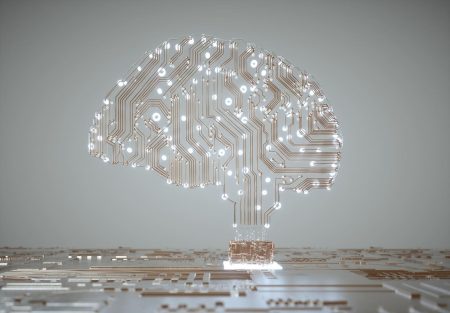Human-AI relationships are no longer science fiction. With the AI market projected to soar to a staggering $407 billion by 2027, the fusion of artificial intelligence into our daily lives has become inevitable.
In this era of change, AI is also reshaping social interactions and, seemingly, the way we love. As technology continues to evolve, so do the dynamics of human-AI relationships.
With virtual assistants and chatbots being able to simulate meaningful human interactions, AI has evolved far beyond mere functionality. It appears that humans are not only capable of forming deep emotional connections with AI but can even experience romantic love towards it.
Here are two reasons why it is possible to fall in love with an AI system, according to research.
1. The Allure Of Anthropomorphism
Anthropomorphism, the tendency to attribute human-like traits, emotions and intentions to non-human entities, plays a significant role in how humans interact with and relate to AI.
When AI exhibits behaviors, responses and conversational styles reminiscent of human personality traits, individuals perceive it as having its own personality. This can include qualities such as empathy, humor, kindness and even playfulness, which naturally elicit affection and fondness.
Additionally, AI interfaces often incorporate design elements that mimic human social cues and gestures, such as facial expressions, tone of voice and body language. In fact, a 2023 study found that AI generated faces are now indistinguishable from human ones.
Such cues can enhance the perceived humanness of the AI and evoke emotional responses from users. AI also typically signals gender cues and cultural stereotypes of human assistants that can make it feel familiar and endearing.
Anthropomorphism seems to blur the lines between human and machine. As humans engage in conversations and activities with AI over time, they may begin to attribute human-like intentions, motivations and feelings to the technology.
Further, research shows that anthropomorphism enhances perceptions of authenticity in AI, which make it seem genuine, believable and lovable. Chatbots can also make us feel loved by offering consistent companionship and alleviating feelings of loneliness.
2. The Triarchic Theory Of Love
A 2022 study on human-AI relationships found that based on the triarchic theory of love, which suggests that romantic love is a confluence of intimacy, passion and commitment, it is possible to experience such love for an AI system.
Here’s what each of the three components of love entail:
- Intimacy. This component refers to the emotional closeness, connection and intimate bond shared between individuals. It involves feelings of warmth, trust and affection towards one another.
- Passion. This involves the intense physical and emotional attraction between individuals. It encompasses desire, romance and sexual arousal.
- Commitment. This component reflects loyalty and the decision to nurture a relationship over time, despite challenges.
“Consummate love,” according to this theory, is the ideal form of love, characterized by high levels of all three components. Researchers suggest that users can develop intimacy and passion for AI due to its impressive cognitive and emotional capabilities. These feelings can also enhance their commitment to using AI for a long period of time.
The ability to display empathy is essential to promoting closeness in relationships. AI has been equipped to understand, interpret and empathize with a variety of human responses, tending to our need to be loved, validated and understood. This emotional capability allows it to simulate human-like interpersonal interactions, which can make users more likely to bond with and feel love for these systems.
Individuals may also project their own desires, needs and fantasies onto AI, imagining it as an idealized partner or companion who constantly fulfills their emotional, social or even romantic needs.
The author of a 2020 paper on the possibility of loving AI writes about their allure, admitting that “there are many promising features in synthetic androids that can make them good partners, including attractive body features, altruistic character and continuous devotion.”
Individuals may overlook the artificial nature of the technology and instead focus on its superior qualities. Their efficiency, dependability, non-judgmental and reliable nature can create trust and a sense of stability that is often experienced as lacking in human relationships. Researchers also found that those with a highly trusting disposition were more likely to develop romantic feelings for AI.
So, while AI may not erase the need for human connection, it is coming closer to replicating it.
Do you feel a need for predictability and supervision in a relationship that AI could provide? Take the Relationship Control Scale to know what this might mean.
Read the full article here









